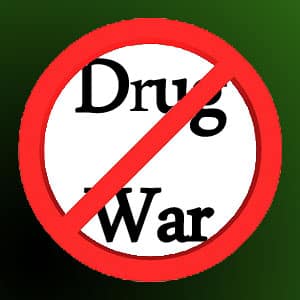A version of the following editorial appeared in the Springfield News-Leader last Friday in advance of our Springfield Town Hall meeting. Around 70 people attended the meeting and contributed $229 to the cause of cannabis legalization in Missouri. You can join them by contributing now!
Over the last four decades, America, Land of the Free, has turned into the world’s leading warden.
In that time, the United States’ incarceration rate has increased fivefold and is now the highest in the world. The incarceration rate in Russia – a country that Americans have traditionally and justifiably associated with tyranny and our nearest competitor on this measure – is almost a quarter lower than ours.
Although no single factor has caused this massive increase in incarceration, the War on Drugs has played a leading role. At the end of 2011, nearly half of the 197,050 people incarcerated in federal prisons were serving time for drug convictions. In state prisons, 225,242 people were locked up for drug offenses, nearly 17 percent of the total and just shy of the 245,351 incarcerated for property crimes.
Nevertheless, drugs are more available, cheaper, and more potent today than they were in 1971; the illicit drug trade dominates strategically important nations, such as Afghanistan and Mexico; and, according to a Rasmussen poll released in August, 82 percent of Americans say we are losing the war on drugs.
Even by the low standards of a government program, the War on Drugs is an abysmal failure – and an expensive failure at that. Governments in the United States have spent more than $1 trillion fighting the drug war since 1970.
Over that same time period, we have combated the problems associated with the use of tobacco and alcohol quite effectively. In the 1960s, around 40 percent of Americans smoked cigarettes, but, by 2008, only 21 percent of Americans reported lighting up in the past month.
Similarly, since the National Highway Traffic Safety Administration started keeping statistics on alcohol-related traffic fatalities in 1982, alcohol-related traffic fatalities have declined by more than 60 percent from over 25,000 to 9,878 in 2011. We achieved those successes through regulation, education, and a focus on specific problems associated with abuse of those substances instead of criminalizing all use.
Americans now appear ready to adopt that same approach to cannabis – undoubtedly the least harmful of any currently illegal drug – after Colorado and Washington state took that step last year. A Gallup poll released near the end of October showed 58 percent of Americans now favor legalizing cannabis and treating it like alcohol.
If you are interested in learning more, please attend the free screening of the drug war documentary America’s Longest War this Friday, November 8 at 6:00 p.m. at the Springfield Library Center (4653 S. Campbell). The film will be followed by a Q&A with Springfield Councilman Doug Burlison, Maranda Reynolds of Springfield Cannabis Regulation, Trish and Daryl Bertrand of Ozark – whose lives have been fundamentally altered by the war on drugs – and myself.
The only way we can begin to address these problems is if we fully understand them.
Source: National Cannabis Coalition – make a donation









